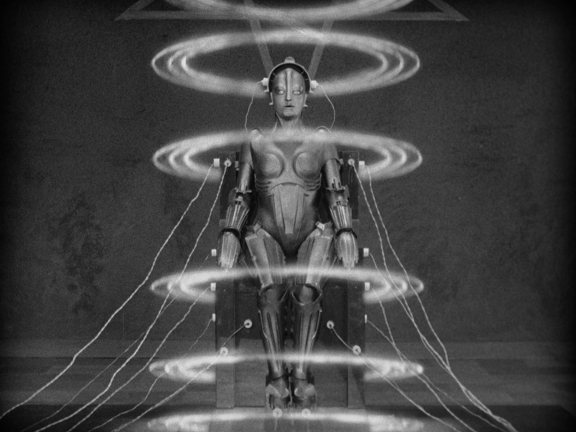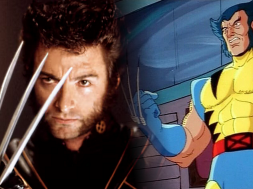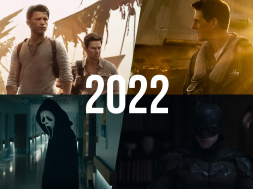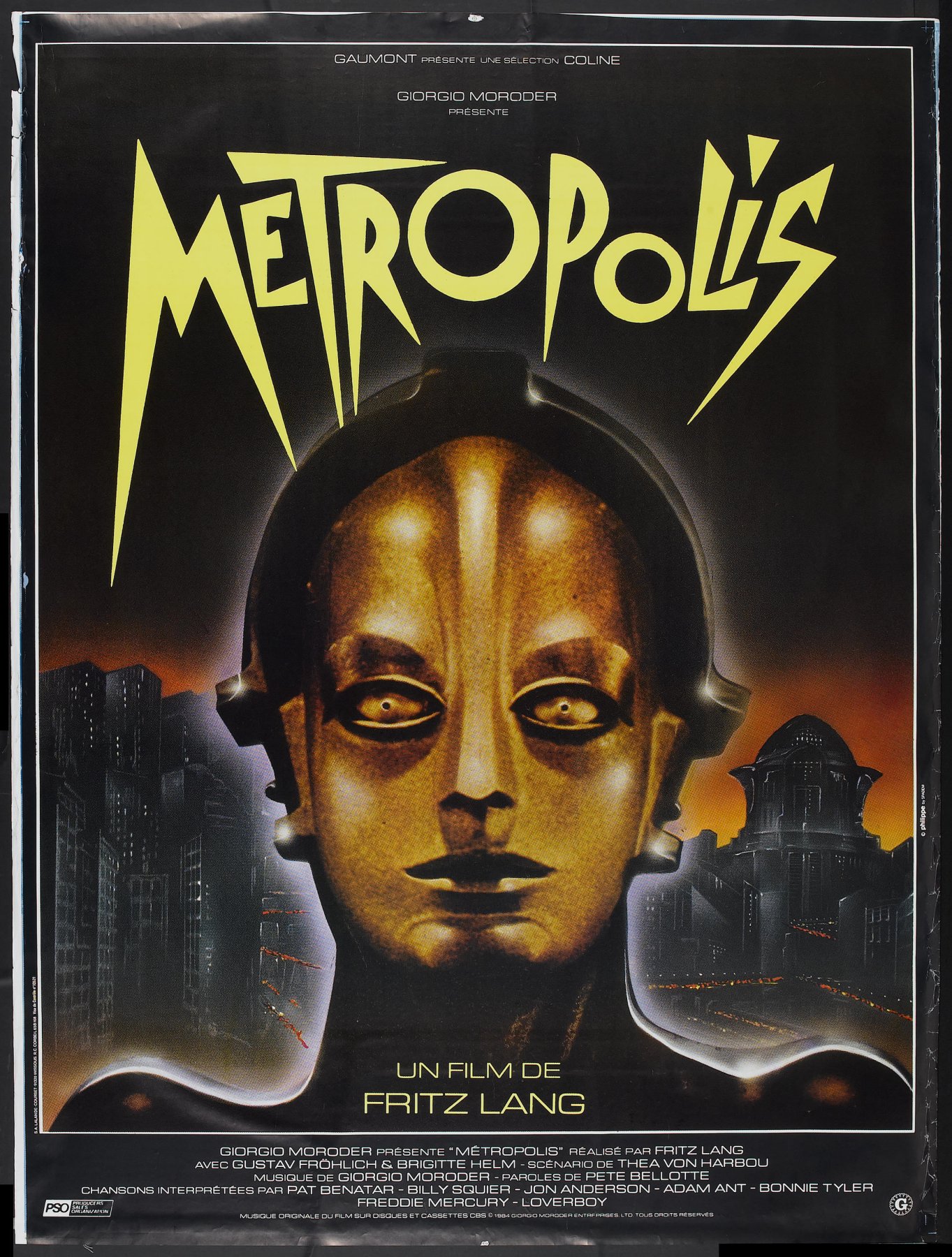What you are about to read (assuming you go on) was originally billed as a Rewind Review. However, for a film celebrating its centenary in just over a decade, that is too much of a stretch. Even so, the film has a renewed pertinence in light of the recent sci-fi release Interstellar; along with Metropolis being a classic of the genre, writer-director Christopher Nolan cites the film as having been a formative influence in his Dark Knight Trilogy.
A classic of German Expressionist cinema also, Metropolis (1927) is an impressive feat. Still, throwing around terms like “Expressionist” can make the film a seem daunting, if not wearisome, prospect. However, to all who might be put off, I urge you reconsider. Expressionism was simply a 20th Century art movement characterized by a distorted and evocative vision of a world distinct from the physical world. In this context Metropolis is emblematic, and enchantingly so. Spoiler warnings apply as always, I warn you do not deprive yourself, do not proceed. (Having only heard the film praised in the loosest  of terms, I managed to remain pig-ignorant until the actual screening, a state of mind not ordinarily endorsed.)
of terms, I managed to remain pig-ignorant until the actual screening, a state of mind not ordinarily endorsed.)
The story follows the lives of a small group of characters who make up the citizenry of a city simply known as Metropolis, or The Metropolis. It is a dystopian vision of the mechanical age, defined by an antipodal socio-economic disparity at the level of the architecture. The city is run by a group known as The Elites, headed by Joh Fredersen (Alfred Abel), who built with the help of C.A. Rotwang (Rudolf Klein-Rogge). Fredersen’s son Freder (Gustav Fröhlich) is a carefree callow young man enjoying life in the garden his father built.
(I should note that any laughter here – Fredersen’s son, Freder Fredersen – is likely unintentional.)
However, while frolicking in the greenery, Maria (Brigitte Helm), a young woman who has brought a group of workers children to see the wonder of the garden. Besotted by Maria, Freder follows her into the subterranean depths of The Metropolis where he discovers the plight of the Worker Class. Meanwhile, his father plots a suppression of the masses with Rotwang, who plots his personal vengeance.
Now in case you did not heed my first warning, I have another. Just note that the film is cracking and seeing it would be a good idea. Upon doing so, the rest of the review will still be here (probably. We’ve avoided meltdowns avoided thus far …).
Metropolis is a highly stylised movie from the outset. The film opens with a shift change of the Worker Class, all dressed in black caps and overalls. They moved in time with one another in dazed, exhausted steps. The costume makes them distinct from their setting but indiscriminate from each other. Furthermore, the tone for the rest of the movie is set by the wonderful contradiction in their movements; the scene has an ugliness in what is depicted while at the same time a beauty in the way in which it is depicted. In order to get the scope of the city, the movie uses montage editing techniques that inspired filmmakers from Alfred Hitchcock to Terry Gilliam, perhaps most obviously in Brazil (1985).
 The performances are good across the board. Contributimg the the film already strong visual style it the lack of spoken dialogue. For a modern audience there is a cue cards while distracting, at first, work to the effect of drawing you in. The confrontation of Freder, his father and his father’s assistant Josaphat (Theodor Loos) is a prime example. So much of the exchange is left unsaid (or off the cue cards). Consequently, members of the audience have to infer the conversation for themselves, further emphasising the films strong visual sensibility. However, there are two stand-out performers. Rudolf Klein-Rogge’s portrayal of inventor C.A. Rotwang borders melodrama but is compelling throughout. Still, actress Brigitte Helm steals the show. As Maria she is the reification of non-violent opposition and reform, of the transformative power of co-operation. As the machine-man (a doppelganger) she represents the destructive self interests of her creator, C.A. Rotwang. The performance(s) are impressive in their range and execution.
The performances are good across the board. Contributimg the the film already strong visual style it the lack of spoken dialogue. For a modern audience there is a cue cards while distracting, at first, work to the effect of drawing you in. The confrontation of Freder, his father and his father’s assistant Josaphat (Theodor Loos) is a prime example. So much of the exchange is left unsaid (or off the cue cards). Consequently, members of the audience have to infer the conversation for themselves, further emphasising the films strong visual sensibility. However, there are two stand-out performers. Rudolf Klein-Rogge’s portrayal of inventor C.A. Rotwang borders melodrama but is compelling throughout. Still, actress Brigitte Helm steals the show. As Maria she is the reification of non-violent opposition and reform, of the transformative power of co-operation. As the machine-man (a doppelganger) she represents the destructive self interests of her creator, C.A. Rotwang. The performance(s) are impressive in their range and execution.
The religious imagery in the film is crucial. The two elements that it focuses on the most are the Trinity and The Tower of Babel myth. The latter functions as a symbol of the disconnect that between the Worker Class and The Elites. The failure to communicate is accented at the movie’s preface: “The Mediator Between Head and Hands Must Be the Heart”. While such a pronouncement would be sentimental or even saccharine in some films, here it is not so. For all its modernity, Metropolis is a parable, a cautionary tale, in which this seemingly simple sentence is totally fitting.
Terrifying and vital, Metropolis remains a film it is imperative to watch. 9/10










